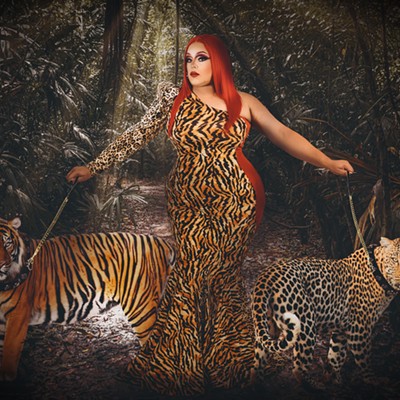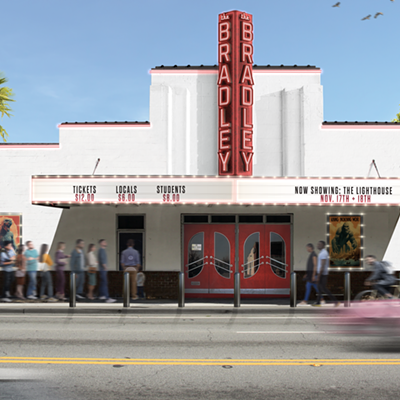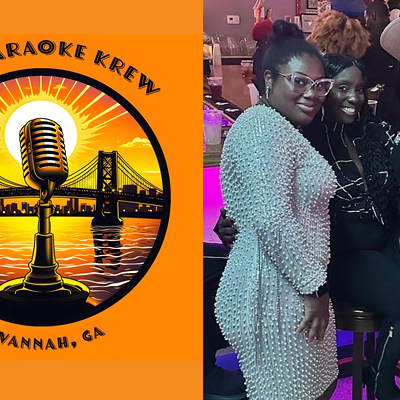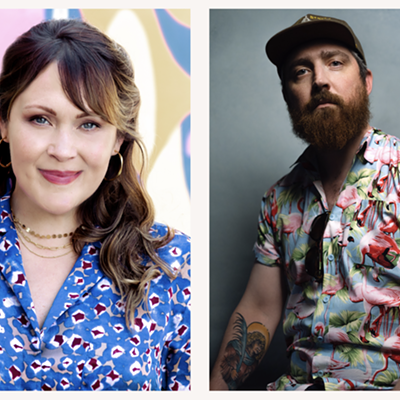Last September I made up my mind that I could only watch one show on Monday nights. Would I choose Studio 60 on the Sunset Strip, the highly anticipated drama from multiple Emmy winner Aaron Sorkin which kicked off with one of the best pilot episodes ever filmed?
Or would I opt for Heroes, Teen Wolf Too writer Tim Kring’s ridiculous attempt to capitalize on the comic book craze which began with an insufferable pilot with dialogue like, “If God has indeed created himself in his own image, then I submit to you that God is a cockroach”?
I made my choice accordingly, but America disagreed. Heroes became NBC’s top-rated show, and Studio 60 became a punchline.
I regretted hopping on the wrong bandwagon. I love comic books, I love serialized television, and I really love Lost, its most-cited reference point. My friends who rarely watch TV started raving about it, and Heroes quickly became the water cooler hit in my office. Meanwhile, nobody wanted to talk to me about Danny Tripp and Jordan McDeere’s blossoming romance on Studio 60.
So when Heroes came out on DVD a few weeks back, I was first in line. The new season doesn’t start until the end of the month so I’d have time to catch up. I devoured it, rushing through the whole season in just a little over a week.
And now I have to ask, what’s the big deal? Heroes is not a good show. Actually it’s half good, which makes it even worse. If it was all bad at least it wouldn’t have any potential to live up to. I’ll have to verge into non-specific spoiler territory to explain myself further, so stop reading now if you want this shimmering jewel to remain untarnished in your mind.
I can’t imagine how anyone watches Heroes without wanting to have a sitdown with Kring to walk him through his own show: “OK Tim, this part works, this part is absolutely terrible.” The crap to gold ratio is almost exactly 50/50. Of the twelve main characters, I loved six and wanted the other six to die horrible, brutal deaths (at least two did, thank cockroach God).
The writing is almost uniformly awful, and the acting is either leaden or fantastic and therefore undeserving of such lame dialogue. Even worse, the show makes a fatal error by showing us a flash-forward less than halfway through the season of what’s going to happen and spends the rest of the season showing the pieces falling into place.
The writers are banking on the “ah, so that’s how that got there!” effect, but it’s just plain old anticlimactic when the colossally disappointing finale finally arrives.
It’s also just flat-out sloppy at times. The first quarter of the season includes some amateurish camera work you’d have beaten out of you in Film 101 and the writers pad the episodes with overlong “previously on” recaps and repeat the last five minutes of each episode at the beginning of the next one.
An entire episode is devoted to a pointless, arbitrary alternate future, the new millennium’s equivalent of the “remember that time?” sitcom clip shows of the 80’s.
In a nod to (or ripoff of) Lost, the characters are all connected in some way or another, but where Lost mines these links for maximum emotional and thematic impact, Heroes tosses them around like they were pulled out of a hat.
And where Lost skillfully weaves references to the Bible, obscure sociologists and Little Miss Sunshine into a cohesive whole, Heroes simply steals. Most comic book fans immediately recognized the show’s doomsday scheme of killing off New York in the name of lasting peace from Alan Moore’s twenty-year-old masterpiece Watchmen (I can’t wait for morons to start accusing Zack Syder’s upcoming film adaptation of ripping off Heroes).
That being said, there’s a lot to like here even though the show falls far short of its ambitions. Hayden Panettiere’s oft-advertised cheerleader is a classic Peter Parker-esque archetype, and her relationship with her morally ambiguous father played brilliantly by Jack Coleman is the heart of the show. I can’t imagine anyone not rooting for Masi Oka’s beloved Hiro Nakamura, whose initial silliness gives way to true heroism. The arrogant villain Sylar has cartoonish beginnings (seriously, eating brains?) but Zachary Quinto gives him an unexpected sympathetic side.
I’d like to say I have high hopes for the second season. But since Bryan Fuller, the show’s only good writer, is departing to helm the promising-looking Pushing Daisies, I doubt even its most ardent fans will be able to overlook the cracks in its foundation.
I’ll be watching, though. I underestimated Heroes once; I won’t make the same mistake twice. 
Scott Howard is a writer, artist and all-around media gadfly. Write him at
[email protected] or scott-howard.com.
To comment e-mail us at

























